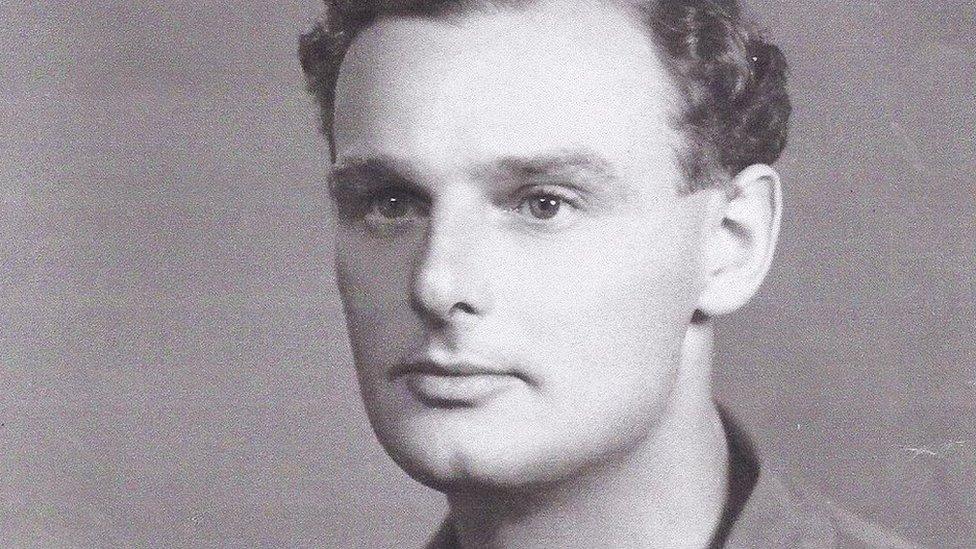Family reunited with 'amazing' lost wartime letters
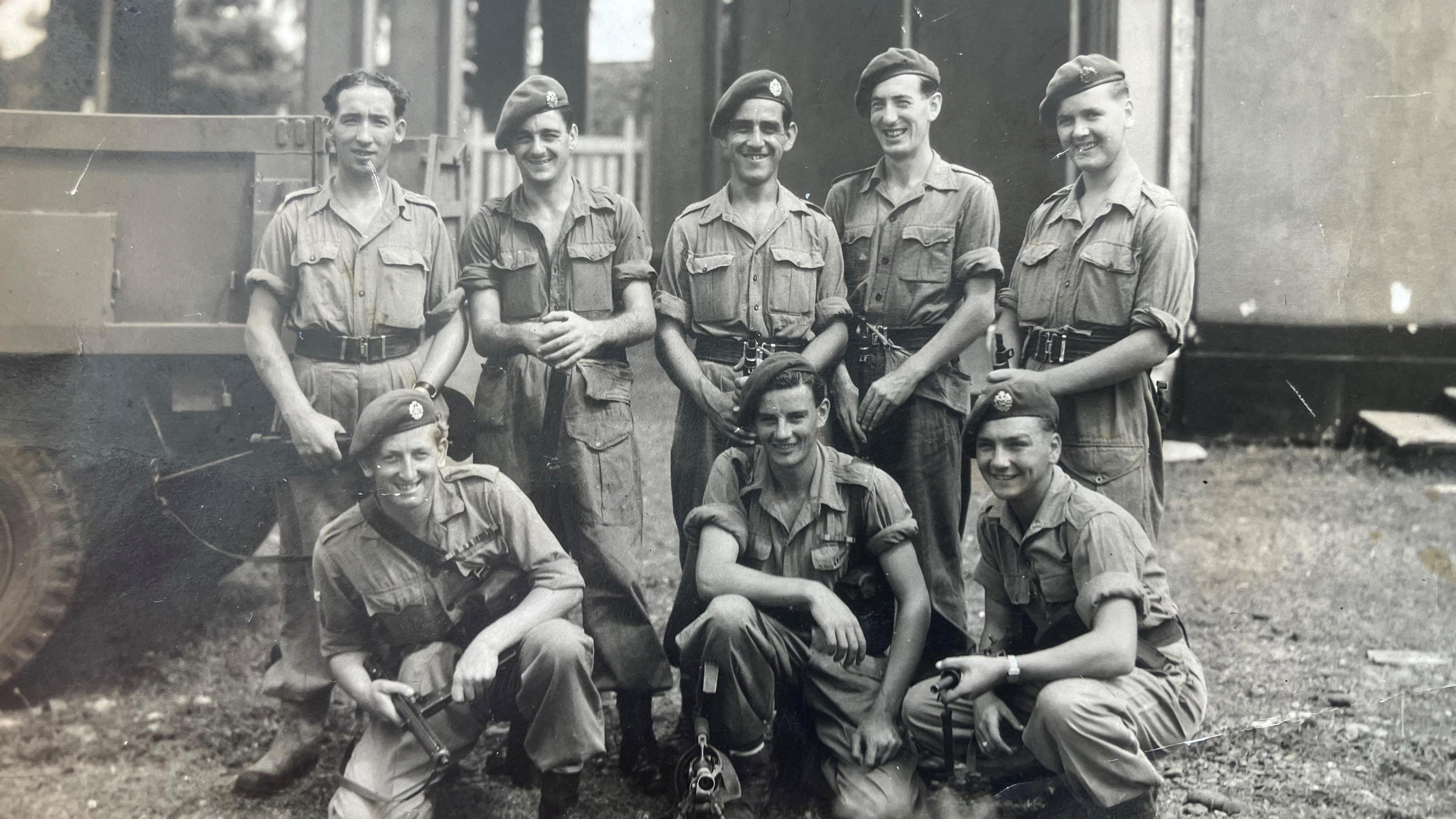
Les Wilkinson (centre, back) served in Burma during the Second World War
- Published
Poignant letters between an RAF man and his parents during World War Two were thought lost until they were discovered in an attic.
The exchanges, between Rochdale man Arnold Wilkinson and his wife Teresa Mary, and their son Les, were written before and after Les had been wounded in Burma and was recovering in hospital in India in 1944.
Described by Les’s sons John and Steve as an “amazing” insight into their family, they include Arnold reminiscing on his own injuries while serving in World War One.
The letters were reunited with the family after the person who found them made an appeal on social media.
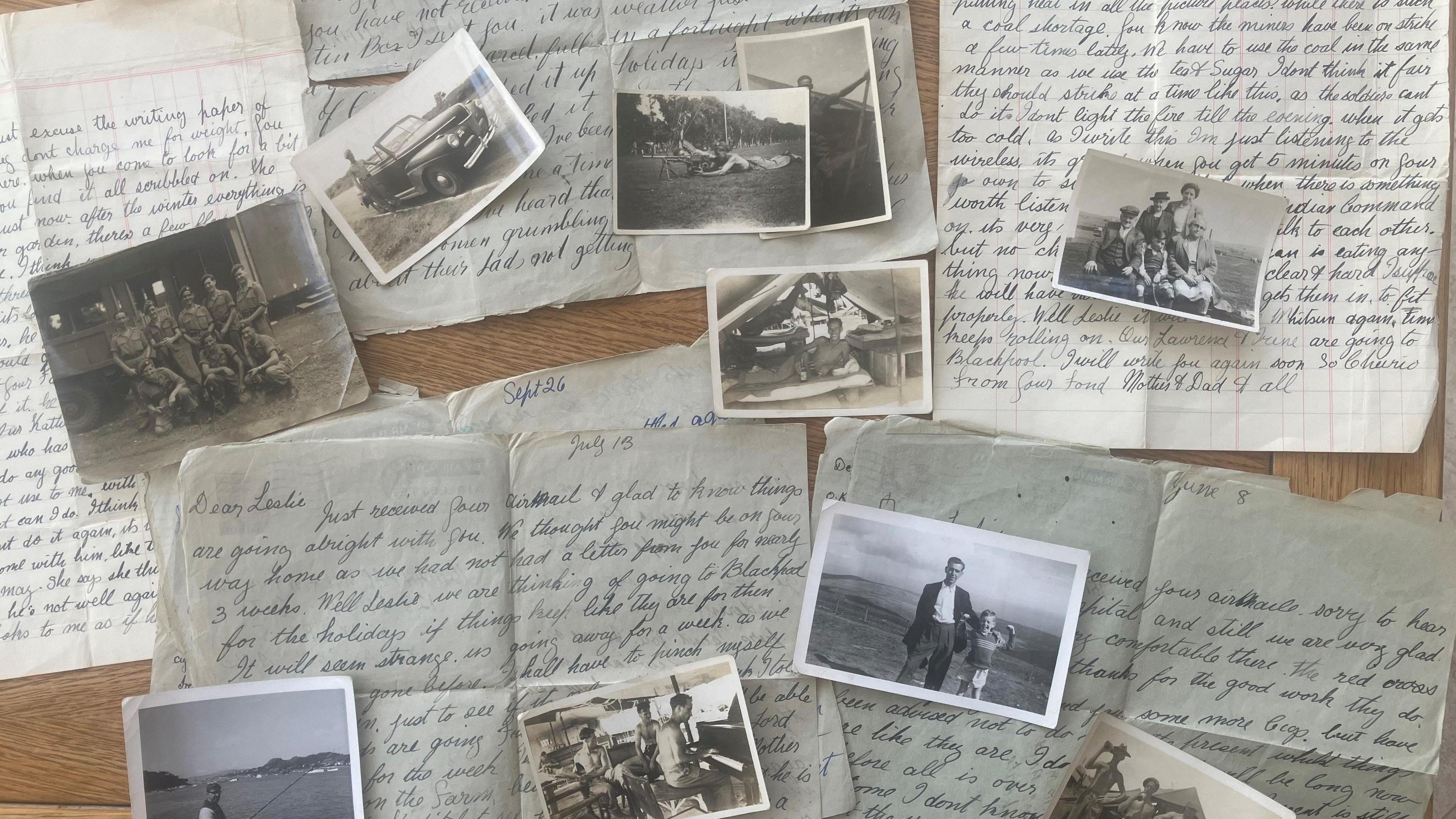
The letters and photographs belonged to Les Wilkinson who served in Burma with the RAF
In one letter, Arnold writes to Les: “I am sorry to hear about you being wounded, I suppose it is worse than you told us, but anyway you are out of the scrap for a bit."
He adds: "It reminds me of getting shot in the right leg, along with several others, and I was helping to put them into ambulances for the CCS [Casualty Clearing Station], and all of a sudden my leg went stiff, and when I looked, I was soaked with blood, and they had to put me in the ambulance.
"That was the first I knew about being hit, quite painless isn’t it at first, but oh boy, afterwards."
Les Wilkinson was born on Christmas Day in 1922, and after WW2 broke out, he was posted to South East Asia as an RAF gunner, serving with 2943 squadron.
During his time in the war, he served in India, Kenya, Burma and Java.
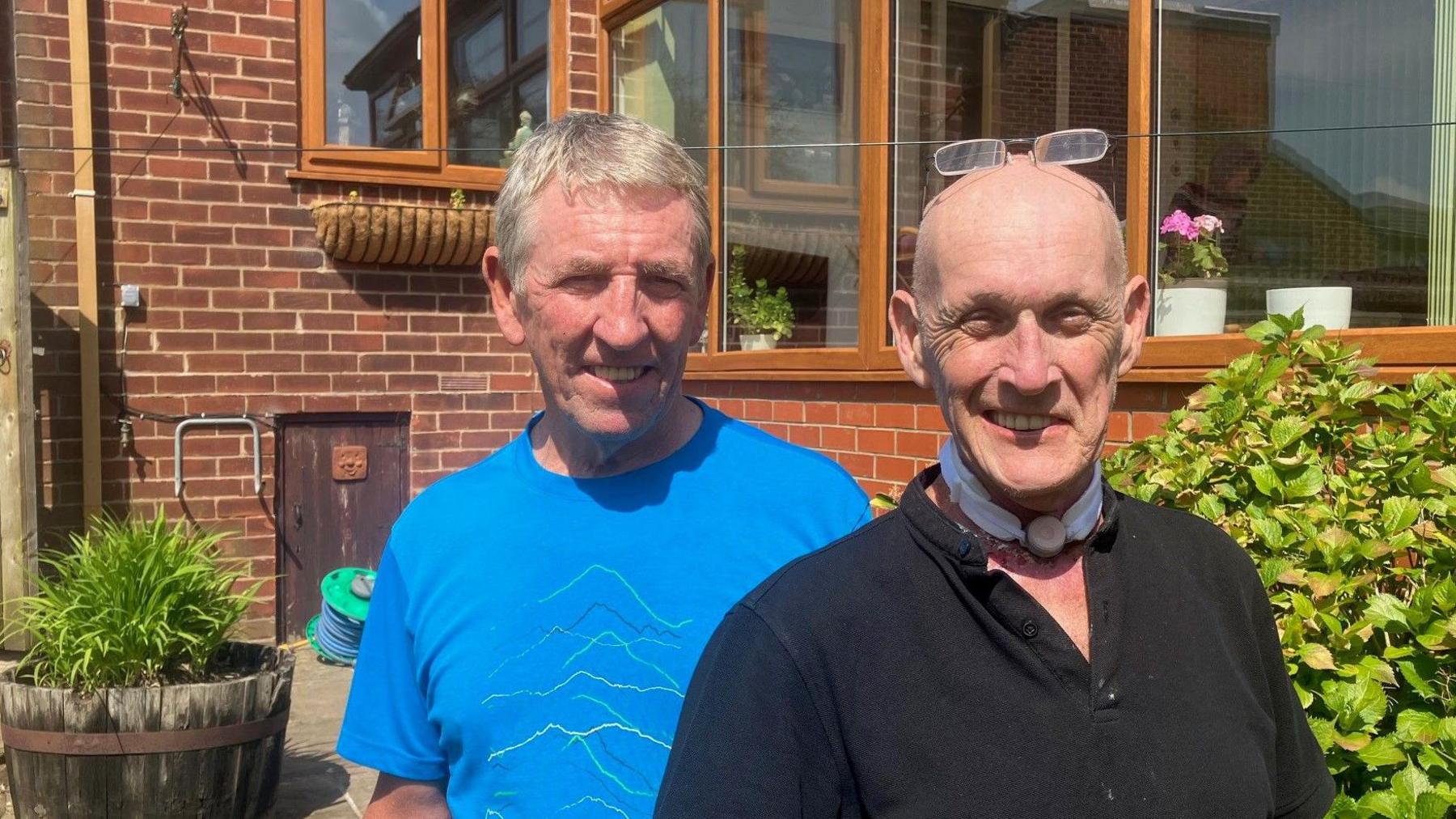
John and Steve Wilkinson had never seen the letters until they were recently found
Many veterans and historians have referred to the Burma Campaign as the 'Forgotten War'.
The Japanese invaded Burma shortly after the attack on Pearl Harbor in December 1941.
The British - backed by troops from India and across the Empire - fought back.
They had to endure horrendous conditions, including month after month of fierce jungle fighting, with the constant threat of tropical disease.
Les suffered a 10-inch shrapnel wound at the top of his left leg in June 1944 and was later discharged.
'Second front'
In one letter written to Les by Arnold during that period, Arnold makes a passing reference to the “second front”, which, in time, the world would come to know as the Normandy beach landings of D-Day, 6 June, 1944 that were pivotal in ending the conflict.
“I wonder if you had heard about the second front starting?” he writes.
“It started on June 6, and everything went according to plan, but they do not think about the poor lads who had to do it.”
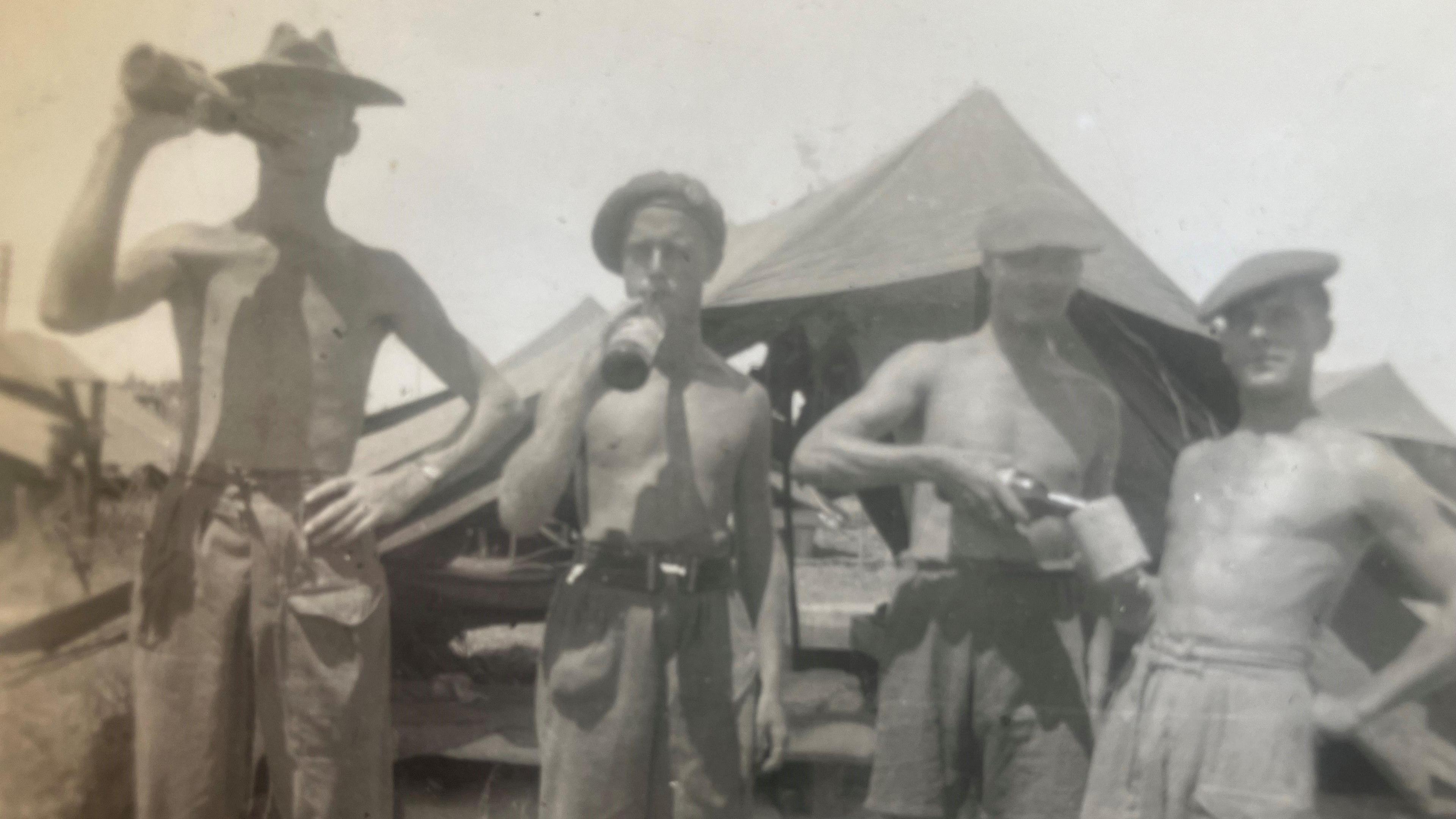
The photographs belonged to Les Wilkinson who served with the RAF in Burma
For years, John and Steve were unaware the letters and photographs belonging to their father existed.
Then, from nowhere, they were found by a woman who was clearing out her grandfather's flat.
John Wilkinson told BBC Radio Manchester: “It's given us an insight into our family during the war, and just what they put up with.
“You can see how concerned they were when he was wounded.”
“The end of the war is not far off now, and you, and all of us will be glad when you get back home
“P.S when you get back to your unit Les, don’t forget, keep ducking”, Arnold signs off one letter.
And Les’s mother Mary Teresa, writing from the family home in Albert Royds Street in Belfield, Rochdale, warns her son: “For God’s sake, be careful.”
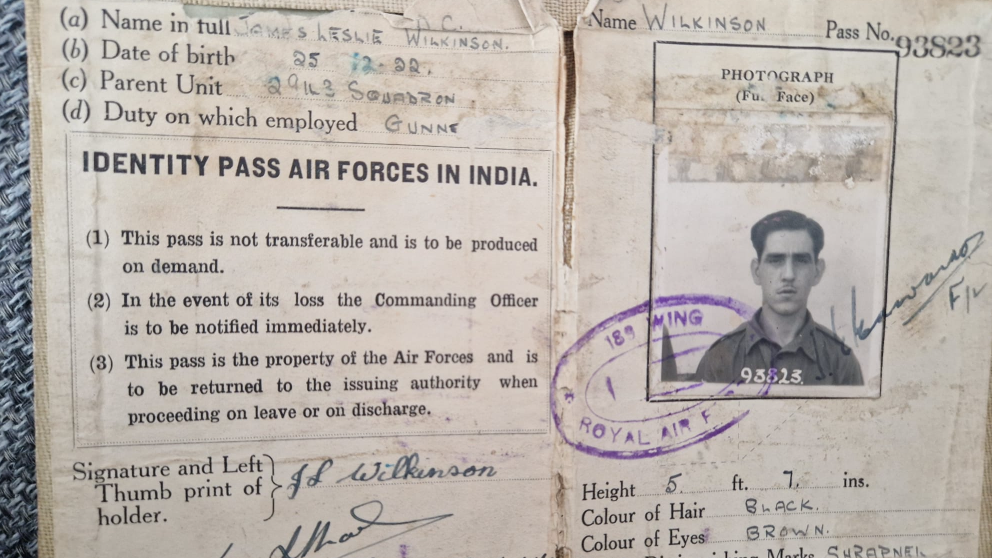
Les Wilkinson served in Burma, Kenya, Java and India
Les returned home and married Barbara, becoming a greengrocer and a plumber in the Milnrow area.
He died in September 2002 at the age of 79, and unfortunately, none of the letters he sent to his parents have survived.
But Arnold and Mary Teresa’s letters to Les are treasured by the family.
“I've spent hours reading these letters,” said John.
“It just makes you even more proud than you were before.”
Related topics
- Published24 June 2018
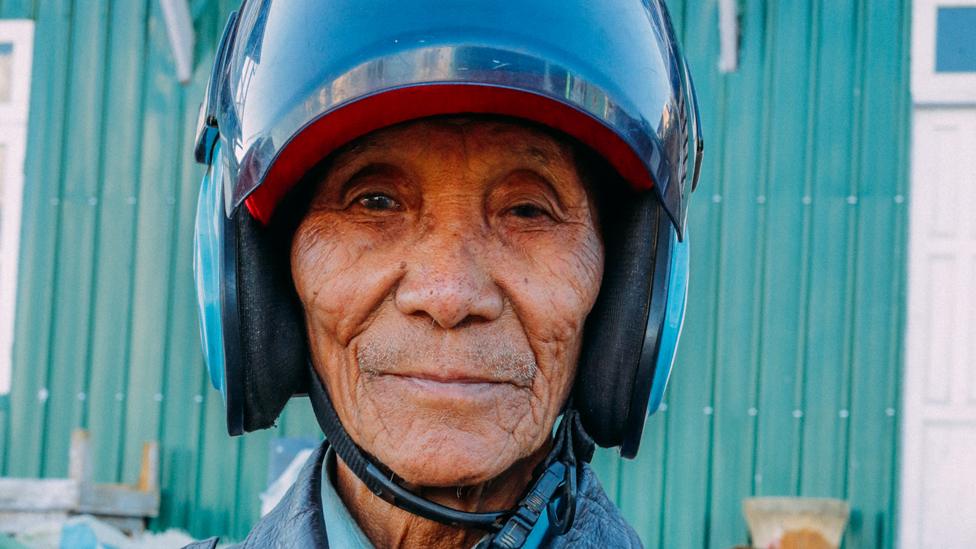
- Published22 January 2024
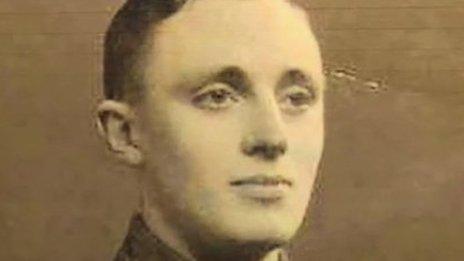
- Published15 August 2020
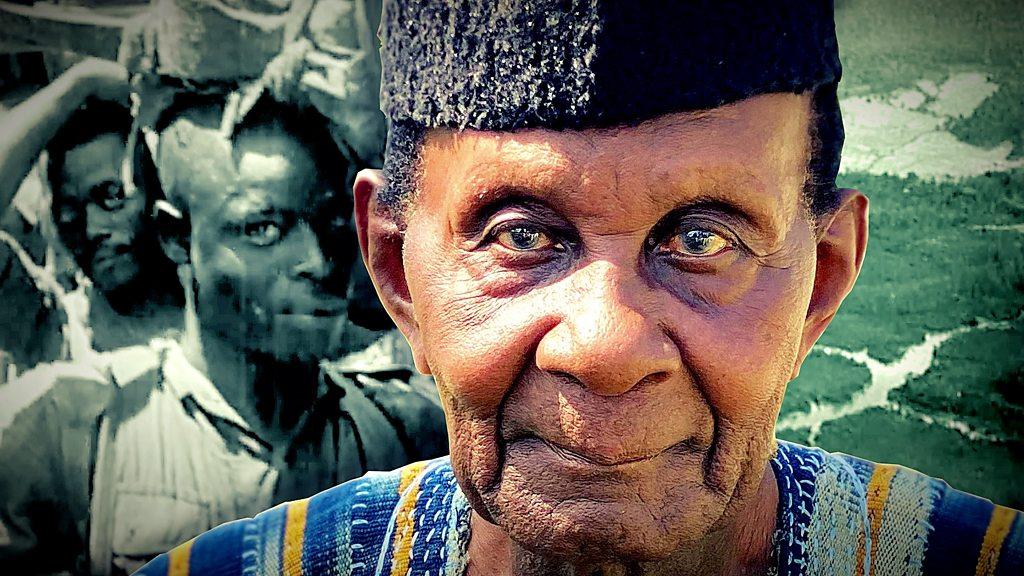
- Published31 January 2016
